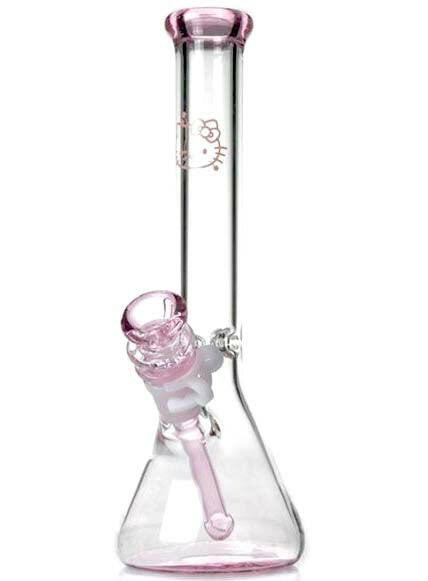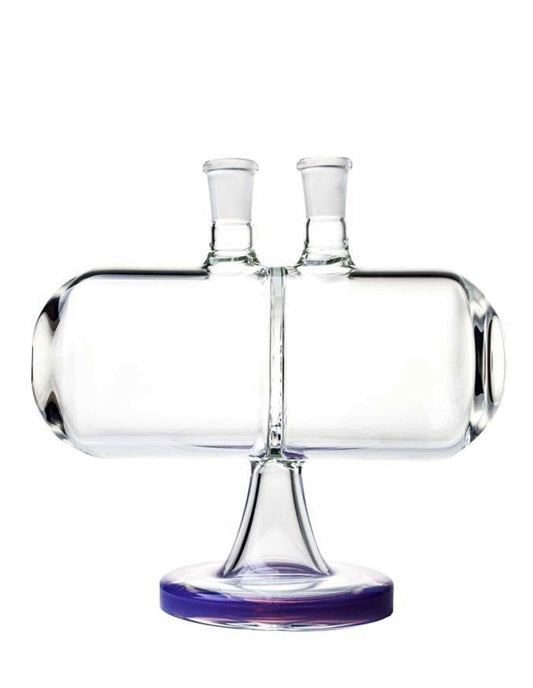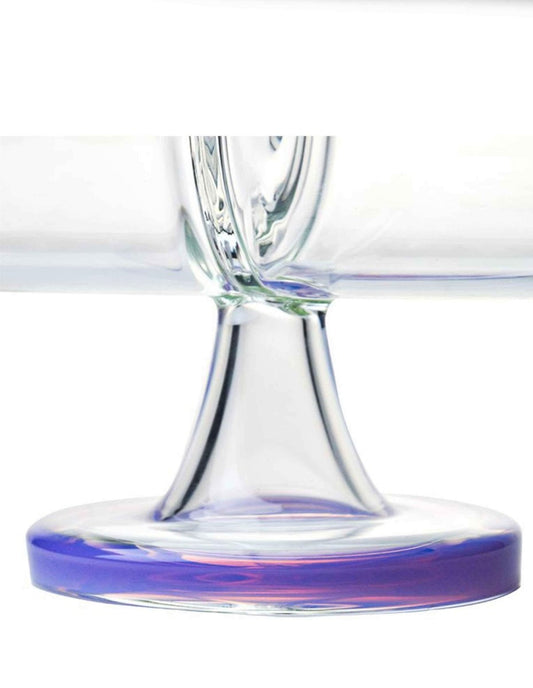Can Using a Bong Cause Pneumonia?
There’s something about sitting down with your favorite bong that brings a certain sense of calm and relaxation. Whether you’re alone, unwinding after a long day, or passing it around with friends at a gathering, the experience can feel almost ritualistic. But let’s get serious for a moment. As enjoyable as using a bong might be, there’s one question that tends to pop up among smokers: Can using a bong cause pneumonia? It’s a valid concern, and if you’ve ever had pneumonia (or even known someone who has), you’ll know it’s no picnic.
So, let’s take a deep dive into this topic, clearing the air (pun intended) on whether or not your beloved bong could be contributing to potential lung issues like pneumonia. Grab your favorite drink, settle in, and let’s talk health, bongs, and those tricky little lungs of ours.
First Things First: What Exactly is Pneumonia?

Before we get into whether or not using a bong can cause pneumonia, let’s start with the basics. Pneumonia is an infection that inflames the air sacs in one or both lungs. The air sacs may fill with fluid or pus, leading to a nasty list of symptoms like coughing, fever, chills, and difficulty breathing. Pneumonia can range from mild to severe, and in some cases, it can be life-threatening, particularly for young children, older adults, and people with weakened immune systems.
Pneumonia can be caused by bacteria, viruses, or fungi, and while you’re probably more familiar with catching pneumonia after a bad cold or the flu, it can also develop when harmful particles (like smoke, mold, or bacteria) are inhaled into the lungs.
Now that we’ve covered the basics, let’s get to the real question: What’s the connection between using a bong and pneumonia?
Bong 101: What Happens When You Take a Hit?
If you’ve ever used a bong, you know the drill. You pack the bowl, light up, inhale deeply as the smoke passes through the water, and exhale a cloud of bliss. One of the reasons bongs are so popular is that they provide a smoother hit compared to joints or pipes. The water in the bong cools and filters the smoke, making it feel less harsh on your throat and lungs. But just because it feels smoother doesn’t mean it’s harmless.
When you inhale smoke—whether from a bong, joint, or cigarette—you’re introducing foreign particles into your lungs. These particles can irritate your respiratory system, potentially leading to inflammation. And here’s where things get tricky. If you’re not careful, the irritation from frequent bong use could make your lungs more vulnerable to infections, including pneumonia.
The Role of Dirty Bongs: A Breeding Ground for Bacteria and Mold

Let’s get real for a moment: cleaning your bong regularly is essential. And no, we’re not just talking about making your hits taste fresher (though that’s a nice bonus). A dirty bong is basically a petri dish for all sorts of nasty stuff, including bacteria, mold, and even fungi. If you’re not cleaning your bong regularly, you’re not just inhaling smoke—you could be inhaling harmful microorganisms as well.
When you leave bong water sitting for too long, it becomes a breeding ground for mold and bacteria. And trust me, that’s not something you want anywhere near your lungs. Each time you take a hit from a dirty bong, you risk inhaling these tiny invaders into your lungs, and this is where pneumonia can enter the picture.
Mold and bacteria inhaled into your lungs can cause irritation, inflammation, and eventually infection. If your immune system isn’t up to the task of fighting off these invaders, they can settle into your lungs and lead to pneumonia. So, while the smoke itself may not directly cause pneumonia, a dirty bong certainly increases your risk.
Can Water in the Bong Be a Problem?
You might be thinking, “But the water in the bong is supposed to filter and cool the smoke, right? Isn’t that a good thing?” And yes, the water in your bong does help to filter out some harmful particles, cooling the smoke and making it less irritating to your lungs. But here’s the catch—water doesn’t filter out everything.
In fact, water alone isn’t enough to remove all of the harmful substances in smoke. Some toxins still make it through, including tar, which can settle in your lungs and cause irritation. Over time, this can weaken your lungs and make them more susceptible to infections like pneumonia.
Plus, the water itself can become contaminated if it’s not changed frequently. As we mentioned earlier, stagnant water in your bong can become a haven for mold and bacteria, both of which can lead to lung infections. So, if you’re using your bong regularly but aren’t changing the water after every session, you could be increasing your risk of pneumonia without even realizing it.
Frequency of Use: More Hits, More Risks
Let’s be honest—some people only pull out the bong for special occasions, while others use it regularly as their primary smoking method. How often you use your bong can play a big role in your overall lung health. Frequent bong use means more frequent exposure to smoke, tar, and potential contaminants, all of which can take a toll on your lungs over time.
If you’re hitting the bong daily (or multiple times a day), you’re giving your lungs less time to recover from the irritation caused by inhaling smoke. This constant exposure can lead to inflammation in your airways, making it easier for bacteria and viruses to settle in and cause infections like pneumonia.
That doesn’t mean you have to ditch the bong entirely, but it’s worth considering how often you’re using it and whether you’re giving your lungs enough time to heal between sessions. Moderation, as with most things in life, is key.
Are There Specific Types of Pneumonia Linked to Bong Use?
Now, let’s get a little more specific. Can using a bong cause a particular type of pneumonia? There are a few ways that frequent bong use can increase your risk of developing lung infections, including aspiration pneumonia and bacterial pneumonia.
Aspiration Pneumonia
Aspiration pneumonia occurs when you inhale food, liquid, or other particles into your lungs, causing an infection. While this is more common in people who have trouble swallowing (like the elderly or those with certain medical conditions), it can also happen to smokers. If you accidentally inhale water or other substances from your bong into your lungs, it could lead to aspiration pneumonia.
This is more likely to happen if you’re coughing a lot while using your bong or if you’re using a particularly dirty bong that has stagnant water or particles floating in it. Once those particles reach your lungs, they can cause infection and lead to pneumonia.
Bacterial Pneumonia
Then there’s bacterial pneumonia, which, as the name suggests, is caused by bacteria infecting the lungs. As we mentioned earlier, dirty bong water is a breeding ground for bacteria, and inhaling contaminated water or smoke could introduce harmful bacteria into your respiratory system.
Once the bacteria enter your lungs, they can cause inflammation and infection, leading to bacterial pneumonia. If you’re already dealing with a weakened immune system or chronic lung conditions, you’re at an even higher risk of developing this type of pneumonia.
Symptoms to Watch Out For
So, what should you be on the lookout for if you think your bong use might be causing pneumonia? Symptoms of pneumonia can vary, but some common signs include:
- Persistent coughing (sometimes with mucus or phlegm)
- Shortness of breath
- Fever and chills
- Chest pain (especially when breathing deeply or coughing)
- Fatigue or weakness
- Rapid or shallow breathing
If you notice any of these symptoms after frequent bong use, it’s important to take them seriously and see a doctor. Pneumonia can become severe if left untreated, so catching it early can make a big difference in your recovery.
How to Minimize the Risks
Okay, so now that we’ve established that using a bong can potentially contribute to lung infections like pneumonia, let’s talk about how you can minimize your risk while still enjoying your smoke sessions.
1. Clean Your Bong Regularly
I can’t stress this enough: clean your bong after every use, or at the very least, once a day if you’re a regular user. This will help prevent the buildup of bacteria, mold, and other contaminants that can lead to lung infections. A clean bong means cleaner hits, and cleaner hits mean healthier lungs.
2. Change the Water Frequently
It might seem like a hassle, but changing the water in your bong regularly is one of the easiest ways to reduce your risk of pneumonia. Stagnant water is a breeding ground for bacteria and mold, so swap out that water after every session. Fresh water = fresh hits.
3. Limit Your Bong Use
If you’re using your bong multiple times a day, consider cutting back to give your lungs a chance to recover between sessions. Frequent exposure to smoke can weaken your lungs over time, making it easier for infections like pneumonia to take hold.
4. Stay Hydrated
Drinking plenty of water helps keep your respiratory system hydrated and can make it easier for your body to expel mucus and toxins from your lungs. It’s a small step, but staying hydrated can help reduce lung irritation and keep your airways clear.
5. Consider Vaping
While vaping isn’t without its risks, using a dry herb vaporizer can reduce the amount of harmful combustion byproducts you inhale compared to traditional smoking methods like bongs. Vaporizing heats your herb to a temperature that releases cannabinoids without burning the plant material, which means less smoke and tar in your lungs.
The Bottom Line: Can Using a Bong Cause Pneumonia?
So, can using a bong cause pneumonia? Yes, it can—but it’s not as simple as saying, “Bongs cause pneumonia.” It’s more about the conditions under which you’re using your bong. If you’re using a dirty bong with stagnant water, inhaling bacteria and mold, or using it too frequently without giving your lungs time to recover, then yes, you’re increasing your risk of developing lung infections like pneumonia.
The good news is that with proper care—cleaning your bong regularly, changing the water often, and moderating your use—you can reduce your risk and still enjoy the smooth hits that bongs are known for. Your lungs will thank you, and you’ll be able to enjoy your sessions without worrying about ending up in the doctor’s office.
So, next time you sit down with your bong, take a moment to give it a good clean, fill it with fresh water, and take a deep, smooth hit—knowing you’re doing your best to keep your lungs happy and healthy.







